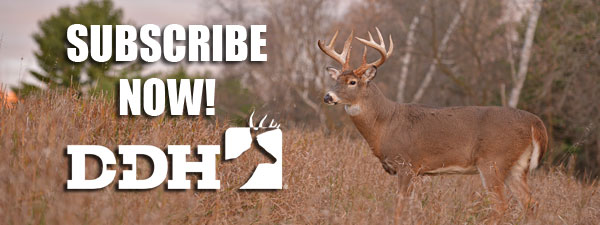Being prepared when you head out hunting deer or anything else doesn’t mean lugging a small suitcase full of gear to help you build a shelter worthy of a homebuilder’s award or a fire that could roast a small cow.

But it does mean you should think about having a few items that could help tide you over if you get lost or injured. That’s not being a namby-pamby. It’s just smart to have a few things to help you get a fire started, stay warm, and provide a little peace of mind.
If you’re lost, for whatever reason a fire seems to be soothing and can calm the jitters. You can use it to boil water and cook meat, should you have anything, along with staying warm. It’s also a possibility that any searchers might see it or the smoke, should you be really lost and decide to stay put if a search is ongoing.
If you’re injured, having some paracord may be helpful to rig up a makeshift splint. Paracord also is great for lashing saplings to create a makeshift shelter, tripod to hang a mug to boil water, or to create a tripline to alert you to zombies. (Kidding. Zombies don’t like cold weather.)
Great tips for survival tactics and packs aren’t anything to ignore. Here are some other small but helpful items for your pack:
Lighters — A Bic lighter, old-school Zippo with fluid, and/or strike-anywhere matches in a waterproof container are good options. Magnesium starters are lightweight and burn hot when you scrape them, either gently into a small pile of shavings or quickly to create white-hot sparks to burn tinder. Chemical starters, such as the Coghlans hexamine tablets, are lightweight and burn for several minutes.
Tinder — There’s no shortage of tinder if the woods are dry. If you’re caught out in the rain or snow, though, or everything’s already wet, then it’s good to have something in reserve. Dryer lint burns well and is easy to pack in a resealable plastic bag. You also could shave off strips of bark from home and have in a resealable bag. Duraflame fire logs can be chipped up and bagged easily, too.
Knife or Multitool — Most of us carry a pocket knife. Having a backup blade — they don’t weigh much — and a multi-tool are good to have. Some folks make fun of hunters who carry a big fixed blade but they’re darn tough and reliable.
Space blanket — These may look flimsy but they’re quite useful to help you retain body heat. Pack two or three of them and use them if need be. They may not be as warm as wool, fleece or whatever performance gear you’re wearing but they can help. You also could rig one to reflect heat from your fire, too.
Fully charged cell phone — We go to the woods to get away from everything, but be sure your phone is charged. If you run a lot of battery-sucking apps, especially if you’re in an area where service is lousy and your phone constantly seeks a signal and drains the battery, turn off those unnecessary apps while you’re hunting. If your hunting area has a lot of water or is swampy, pack it in a doubled resealable bag, too. A dunked phone is a skunked phone. If you’re camping for several days take a lightweight portable charger. They’re inexpensive and can give you at least one charge.
Flashlight – With all the available lights today, this one’s up to you to choose which you prefer. Smaller LED flashlights give you great illumination. The downside to those with lithium batteries is they run out faster if you’re using the light on high beam or for long periods. Old school battery-powered lights may not be as bright but may last longer. Choose wisely!


